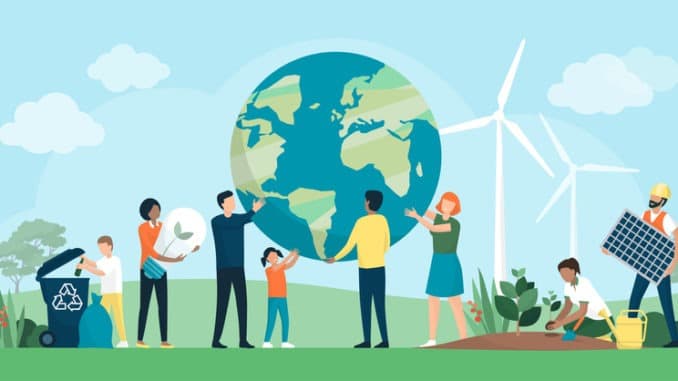
The healthcare community mobilised against COVID-19 and can mobilise again to tackle the pressing issue of climate change which is increasingly impacting global health
CREDIT: This is an edited version of an article that originally appeared on The BMJ
The COVID-19 pandemic proved to be an unprecedented global stress test for health systems – both revealing and exacerbating problematic areas. Disinformation and misinformation, mixed with a festering distrust of science, politicised age-old common sense public health interventions. When prevention failed, even the best-functioning healthcare systems broke under the surge of COVID-19 patients. While the rollout of vaccines will lessen the pandemic burden, climate change still threatens to further disrupt our health systems and erode decades of health gains.
Last December was the fifth anniversary of the Paris agreement, and we are at the critical juncture of countries disclosing their efforts to meet national commitments to reduce emissions. Thus far, the political will to implement policies that will avoid the most catastrophic health outcomes have failed to materialise; current policies place today’s world – already 1.2°C warmer than in pre-industrial times – at up to 4°C warmer by 2100.
The fragility of health and health systems in a 1.2°C warmer world is already apparent, though these effects are not felt equally. Heatwave exposure among older people reached a record high in 2019; the conditions for transmitting dengue, malaria, and diseases caused by vibrio, are growing more favourable, and the yield potentials of major crops continue to decline – yet only half of the countries surveyed have national climate and health plans, and two thirds of cities are concerned that climate change will overwhelm their public health infrastructure.
After the events of 2020 many in health may find it hard to fathom tackling an existential crisis like climate change; yet we are in the critical window for action and, without a 7.6% reduction in greenhouse gas emissions each year over the next five years, the goal of keeping the global temperature rise below 1.5°C in 2100 is likely to be out of reach.
Grounds for optimism?
There are grounds for optimism, however, as the parallels and intersections with the COVID-19 crisis have fostered advocacy for making climate action a critical part of pandemic recovery. The health community is well-positioned to reinforce and amplify these two key messages.
Firstly, climate action is essential for successfully tackling the other pressing global challenges affecting health, such as poverty and universal health coverage. Climate change underlies, and exacerbates, barriers for improving health – threatening to increasingly undermine health gains and widen inequalities. Governments must take an integrated approach when tackling these problems, and health professionals need to amplify the wide-ranging health benefits of acting holistically.
Climate action, equity, health and economic goals are dependent and reinforce one another. Stimulus packages aimed at recovery from the pandemic offer a once in a generation opportunity to rapidly expand clean energy jobs and accelerate our transition to net zero economies. Most of the world has failed to capitalise on this opportunity.
The second key message is that moving away from fossil fuels has health benefits and economic dividends in both the short and the long term. Although climate action yields greater gains for children and future generations, people today will also benefit, especially vulnerable groups.
Air pollution has the same root cause as climate change – the burning of fossil fuels. Patients’ symptoms and healthcare use will improve in the weeks-to-months after air pollution is reduced, and lives will be saved. The pandemic lockdowns showed us just how quickly air pollution can improve; transitioning away from fossil fuels could prevent 3.6m premature deaths a year from air pollution alone, and save nations billions in healthcare costs. Meanwhile, transitioning to a more plant-based diet, and increasing physical activity through active transportation, also bring near-term health benefits.
Long term, mitigating the health effects of climate change, and minimising health system disruptions, will improve health equity and benefit populations in profound ways that haven’t yet been fully quantified – while also delivering evidence-based economic dividends. For example, not exceeding 1.5°C of global warming could return $264tn-$610tn (£196tn-£450tn; €210tn-€500tn) in economic rewards by 2100.
Yet data and science alone are not enough to motivate change. The message, messenger and method are critical components, and a global medical community united around climate change can be the missing ingredient needed to catalyse action. Only 25% of a population is needed to change societal norms, and behavioural and social scientists can serve as critical experts. Health professionals are trusted sources who exist in every corner of the world to personalise the health benefits of climate interventions; these are powerful tools to combat politicisation and misinformation.
Both the COVID-19 pandemic and climate change bind the world – and the health community – together in a shared fate and common destiny. The health community must recognise this connectedness and harness its collective power.
Together, we can galvanise the political will required to, finally, fill the prescription for better health and equity through climate action.


Be the first to comment